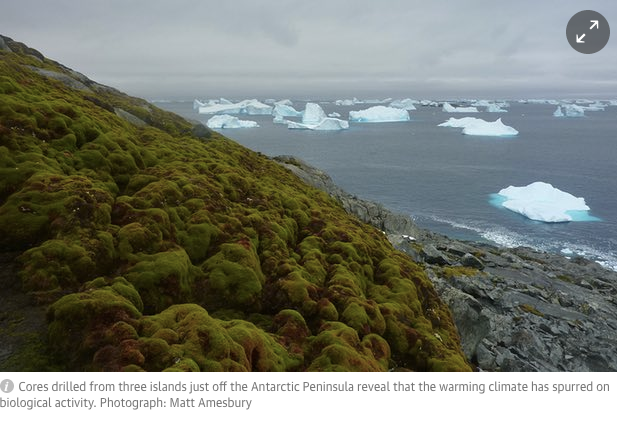If the rise turns out to be as rapid as some project, it could lead to a catastrophe without parallel in the history of civilization.
Some scientists point out that during the last ice age, ice sheets similar to West Antarctica’s formed in other ocean basins. But as the ice age ended and the oceans warmed, all of them collapsed. These experts have started to think that West Antarctica, as a fragile holdover, is basically a disaster waiting to happen — and that if human-caused global warming has not already set the calamity in motion, it may soon do so.
“We could have a substantial retreat on a time scale of 10 years,” said Robert A. Bindschadler, a retired NASA climate scientist who spent decades working in Antarctica. “It would not surprise me at all.”
Climate change is turning Antarctica green, say researchers
Antarctica may conjure up an image of a pristine white landscape, but researchers say climate change is turning the continent green.
Scientists studying banks of moss in Antarctica have found that the quantity of moss, and the rate of plant growth, has shot up in the past 50 years, suggesting the continent may have a verdant future.
“Antarctica is not going to become entirely green, but it will become more green than it currently is,” said Matt Amesbury, co-author of the research from the University of Exeter.
“This is linking into other processes that are happening on the Antarctic Peninsula at the moment, particularly things like glacier retreat which are freeing up new areas of ice-free land – and the mosses particularly are very effective colonisers of those new areas,” he added.




